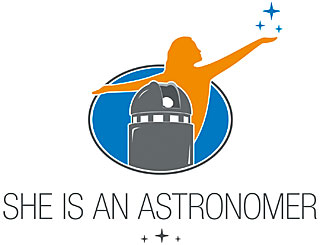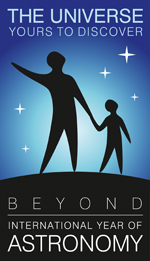She is an Astronomer: breaking down misconceptions

Promoting gender equality and empowering women is one of the United Nations Millennium Development Goals. The IYA2009 Cornerstone project, She is an Astronomer povides information to female professional and amateur astronomers, students, and those interested in the gender equality problem in science. Approximately one quarter of all professional astronomers are women. In some countries there are no female astronomers, whilst in others more than half the professional astronomers are female. The drop in numbers towards more senior levels suggests that scientific careers are heavily affected by social and cultural factors, and are not determined solely by ability.
She is an Astronomer has its own dedicated website, where people can pick up information about the subject, ask questions and find answers. The main areas are: profiles of living and historical female astronomers (a largely invisible part of the astronomy community), resources available to female astronomers, events taking place during the year, an area for ambassadors of She is an Astronomer, and a forum where issues, lessons-learned and challenges can be discussed. At the end of IYA2009 the information gathered will be retained and maintained as a legacy from IYA2009.
UN Millenium Development Goals
![]()
![]()
Task Group
Helen Walker (UK, Rutherford Appleton Laboratory) - Chair
Francesca Primas (ESO)
Eniko Patkos (Hungary, ESO)
Catherine Cesarsky (France, CEA)
Chris De Pree (USA, Agnes Scott College of Atlanta)
Mary Beth Laychak (USA, Hawaii, Canada-France-Hawaii Telescope)
Maria Lugaro (Italy, currently at the Astronomical Institute, University of Utrecht)
Gloria Dubner (Argentina, Instituto de Astronomía y Física del Espacio)
Yiping Wang (China, Purple Mountain Observatory in Nanjing)
Sarah Maddison (Australia, Centre for Astrophysics & Supercomputing, Swinburne University of Technology)
Danielle Alloin (France, CNRS)
Lebohang William Kompi (Lesotho, National University of Lesotho)
Patricia Knezek (USA, NOAO, Tucson)
Doug Duncan (USA, Dept. of Astrophysical & Planetary Sciences, University of Colorado)



